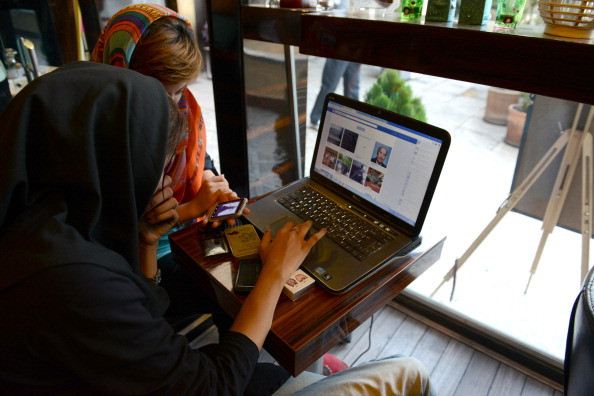Iran claims Twitter and Instagram are willing to bow to morality rules to censor content
Social networks are reportedly working with Iranian authorities to filter 'offensive' content.

The world's biggest social media networks are willing to co-operate with Iran to filter immoral content, the country's own government has claimed. It has been revealed platforms are in discussion to censor content and adhere to the country's strict religious rules in order for citizens to access their services.
Twitter and YouTube, a Google subsidiary, are currently both banned from Iran after mass protests and violence over the 2009 re-election of President Mahmoud Ahmadinejad. Authorities claimed the platforms were used to organise protests and spread anti-establishment content. Facebook-owned Instagram, though, is available.
Iran's new telecommunications minister Mohammad-Javad Azari Jahromi wants to restore banned platforms across the country as long as the tech giants tow-the-line and adhere to the country's "morality" rules.
The state-owned IRAN newspaper quoted the minister as saying Twitter has "officially announced readiness to talk with Iran for resolving the problems" and Instagram has also reportedly been in discussion to agree to filter "immodest" images and profiles.
Jahromi has publicly changed Iran's stance on the microblogging site by saying "Twitter is not an immoral environment needing to be blocked" - but questions remain over the details.
Critics have expressed concern over the social networks' apparent readiness to adhere to Tehran's request, particularly over questions of freedom of speech and expression. They have called for greater transparency between the parties.
Facebook CEO Mark Zuckerberg has long been an impassioned advocate for freedom of speech and was quoted in an interview with Fast Company back in April 2017 saying: "People should have the ability to say what they think, even if someone else disagrees with that. And freedom of speech is a funny thing because people always want freedom of speech unless people disagree with them."
According to an article by the Independent, there is a worry that as pornographic and violent material already violates Instagram, Twitter and YouTube usage policies the Iranian government could be looking to censor a wider range of subjects it deems unacceptable - such as anti-government pictures or a user being able to express their sexuality.
Without details of the dealings between social networks and Iranian authorities being disclosed there is a danger internet watchdogs are worried for rights of users in the country.
"The Iranian government is one of the biggest abusers of limiting information in the world. These proposed measures would invade people's privacy and right to expression and could be a matter of life and death for bloggers and other activists," the article quoted an anonymous analyst at Oxford University's Internet Institute.
Despite Twitter being banned in the country for years it was revealed it was still being used by the country's top leaders and government officials. Millions of citizens, however, have found ways to bypass the ban of Twitter and YouTube by using virtual private networks.
IBTimes UK has reached out to Google and Facebook who have not yet responded.
© Copyright IBTimes 2025. All rights reserved.






















